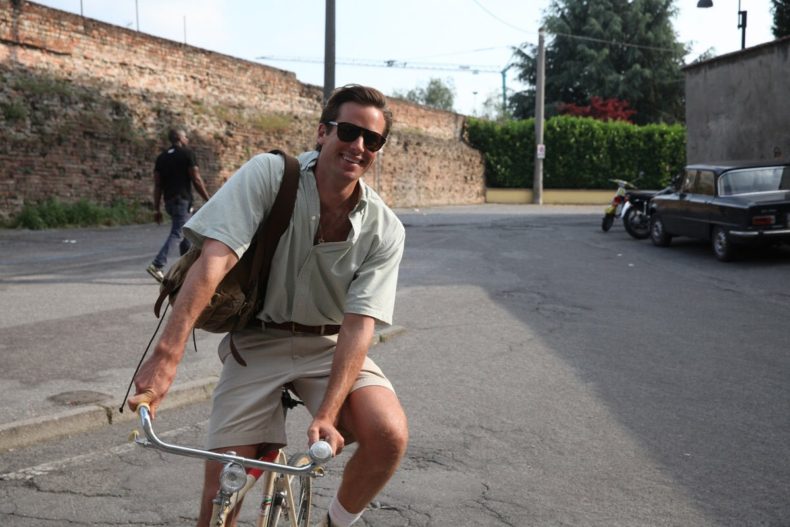
When a society uses a suite of technologies that a single adult can master in his or her lifetime—building a house from scratch, farming, spinning cotton, making medicines, having babies, hunting, fishing, singing and dancing—then it is possible to attain a high level of competency in nearly every major task an adult may be called upon to do.
In the highly specialized western society in which I live, this is not the case. Most of us are completely inept at most things. I cannot build a house, or farm, or fish very well, or sing or play any instruments or do virtually anything well except write. I needed expert help to have my babies and my one attempt at spinning cotton, in the Peruvian Amazon, brought my audience of skilled indigenous people to tears of helpless laughter. Most of us are in this boat. If we can program software, we can’t make a good omelet. If we can make a good omelet, we can’t repair a lawnmower or pass a history test or do even a cursory tango. Most of us suck at most things.
Despite the toll that division of labor has taken on our individual competence in most realms, our admiration for competence is undiminished. We are impressed with people who can weld or make their own beer or do that thing with a frying pan where you flip everything by tossing it into the air. Our cinematic heroes are usually hyper-competent: James Bond, Sherlock Holmes–even the endearingly sociopathic John Wick, who has efficiently killed more than 300 people in his three films.
We love to watch the competent at work. And the more traditional or concrete the task, the more we seem to admire competence in that task—to the point where we have begun teaching ourselves truly anachronistic things as a kind of competence-play: pressing cider, sewing or knitting our own clothes in a world where new ones are a tenth of the price of the unprocessed fabric or yarn, canning beets, flint-knapping, and so on.
If–like me–you are physically clumsy and if–like me–your job mostly involves going clickety-click on your computer, you may feel your own perpetual incompetence especially acutely. In addition to things I daydream about that I’ve never even tried (SCUBA diving, surfing, elk hunting, partner dancing) there are so many things I can “do” but do exceptionally poorly, including eating with chopsticks, any yoga pose that requires balance, swimming, running, art, music, home or auto repair, foreign languages, sports, packing oddly-shaped objects into a container, cooking, and—let me put my cards on the table—driving. I can’t even reliably produce a properly soft-boiled egg or apply eyeliner. When my husband and I were first dating I was too vain to wear a bicycle helmet but he begged me to start because I crash constantly. He generally skips a helmet when cruising around the neighborhood, by the way, because he’s good at riding a bicycle. He rides a bicycle with the sexy-American-in-Europe insouciance of Armie Hammer in Call Me By Your Name. He can also do that frying pan flip thing.

Forget multi-tasking, I can barely single-task, if the task involves operating in three dimensions. This is likely the reason I became a writer. Writing is 2D. You string the words along, one after the other, like beads on a string, and you don’t need any kind of balance, spatial reasoning, muscular strength, hand-eye-coordination or physical grace whatsoever.
My incompetence frequently fills me with a coursing, bodily anger. Recently I spent the afternoon pruning a half dozen wildly overgrown climbing roses. I had watched several YouTube videos on the subject and consulted the Western Garden Book. I still didn’t know what the hell I was doing. I was convinced that all the canes I was carefully pruning to the right length on an upward-facing bud were rootstock anyway, and would produce at most a few simple, short-lived roses. And the roses kept hurting me, kept stabbing me with their thorns and drawing blood, because I was not deft enough to avoid them. I started weeping—not out of sadness or pain but out of pure rage. Why should I be so bad at everything? Why should nature and nurture have produced such an ineffectual person?
My husband hypothesizes that I get angry at my own incompetence because my physical failures makes manifest the truth I am not in complete control of my life. Ultimately, none of us are. If only I could use my frequent failures to achieve some kind of deep Buddha-like acceptance of my lack of control instead of of turning into the middle-aged mom version of the Incredible Hulk.

All of us must live with the fact that we are incompetent at some things, since there are now simply too many things for one human to master. A few of us must live with the fact that we aren’t really competent at anything.
But being human isn’t all canning beets or surfing or pruning roses. A core part of being a human is our relationships with other humans, relationships often built upon cooperation, mutual assistance, division of labor. A purely competent woman wouldn’t need anyone else and might spend her life alone. I have found people in my life who help me. My husband chops onions for me; my brothers and father fix my car; my mother mends my clothes. I eat the ducks that others shoot, the omelets that others flip. If I am competent at anything, it is in maintaining these relationships.
Individual incompetence means we can’t control everything all by ourselves, that we need each other. If you think about it, my vast and infuriating uselessness just creates more opportunities for help to be requested and received, knitting me more tightly into the cable-knit sweater of love that makes life worth living. Or, at least, that is what I’ll tell my brother’s legs, protruding from under my Volvo, the next time he helps me change my oil.
Social competence may be the most important skill that one could possess. Lots of people don’t have it. Clearly, you do!
As with most skills, those who have them don’t seem to know-they just do it, no big deal. Same for you.